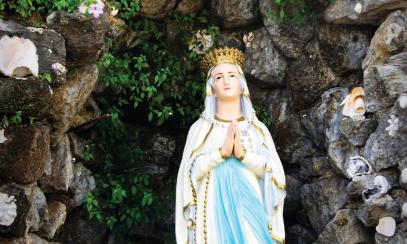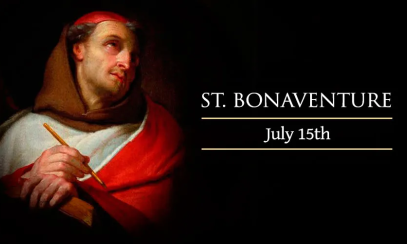Memories of the Seminary, Civil Rights, and a “Contemplative Prophet”
Because of the mob storming the Capitol Building on Jan. 6, 2021, and the events around it, I have been remembering my time in Washington, D.C. I lived there 1961 to 1965, studying theology at Whitefriars Hall, the Carmelite school of theology. Vatican II was in session. During that time, I made solemn vows in the Carmelite Order and was ordained a priest.
It was the time of the civil rights movement. As seminarians, we became involved in the protests. I have always considered our activities in the movement to be a significant part of our formation, our training in Carmelite life.
Our religious superior in those days was Father Peter Hinde, O.Carm. He had been a fighter pilot in World War II stationed on Okinawa. After the war, Peter joined the Carmelites, whom he knew from attending Mount Carmel High School in Chicago. After ordination, and a few years teaching in high school, Peter volunteered to live in the order’s desert house in Wölfnitz, Austria.
Wölfnitz was the site of a hermit community, echoing the original Carmelite community on Mount Carmel in Palestine. Silence and solitude provided an environment for contemplative prayer. Peter lived that eremitical life for three years. He then volunteered for our missions in Latin America.
However, superiors thought he should be the director of the students studying theology in Washington. He would bring a contemplative spirit to the theology house. But contemplation is the deepest source of compassion for a world in need of social justice. Father Peter’s prayer convinced him that the civil rights movement was the great social justice activity of our time.
Civil Rights Movement
Father Peter allowed and encouraged the students to participate in demonstrations and protests on behalf of justice. We joined the March on Washington in August 1963 and were on the National Mall in front of the Lincoln Memorial when Dr. Martin Luther King gave his “I have a Dream” speech.
Our classes required reading many theological texts. But a document that has remained in my memory is Dr. King’s “Letter from a Birmingham Jail,” written in April 1963. Leading a protest against segregation in Birmingham, Ala., Dr. King was arrested for not having a parade permit.
From the jail, Dr. King wrote a long letter recounting the evils of segregation. In particular, he expressed disappointment in the white “moderate,” including the white Church and its leadership, which voiced support for civil rights, but criticized protests. In truth, we saw few Catholic leaders in the early days of the movement.
While Congress was debating the Civil Rights Act of 1964, our Whitefriars Hall community participated with seminarians of all faiths in 24-hour vigils in front of the Lincoln Memorial. After 60 days of debate in Congress, the law was passed. It banned segregation in public accommodations and prohibited discrimination on the basis of race, color, religion, sex, or national origin. This law also prohibited discrimination on the basis of sex, as well as race, in hiring, promoting, and firing.
The next year, in August 1965, Congress passed the Voting Rights Act, which banned literacy tests and other barriers to voting. It said the government could send federal registrars and observers to register new voters and oversee elections. It also required pre-clearance of new election-related legislations in places (mainly states) with a history of voting rights discrimination.
It does the soul good remembering these documents and the moral issues they address. The fundamental issue of human rights is still with us today.
Remembering Father Peter Hinde, O.Carm.
I continue to remember Father Peter Hinde, the religious superior who taught us the connection between prayer and social justice. After five years in charge of theology students, he was granted permission to serve in our Carmelite missions. Father Peter ministered among communities of the poor in Latin America. He was acquainted with those martyred in El Salvador: the four Catholic women missionaries from the United States; the six Jesuits with their housekeeper and her daughter in San Salvador; and Archbishop Oscar Romero (canonized by Pope Francis in 2018), assassinated by the military while saying Mass. Peter co-founded Christians for Peace in El Salvador (CRISPAZ), whose goal was to educate North Americans about the reasons for the suffering of the people of Latin America.
With the idea of “reverse mission,” Peter and Mercy Sister Betty Campbell, a nurse and co-worker, opened Tabor House in Washington, D.C., a community hosting missionaries and exiles from Latin America. The community moved to San Antonio and eventually to Ciudad Juarez, Mexico, across the border from El Paso, Texas.
For the past 25 years, Tabor House has been in Ciudad Juarez accompanying exploited factory workers, abused women, and refugees from Central America. Tabor House welcomed delegations of U.S. citizens from universities, parishes and seminaries who came to the border for week-long immersion experiences.
This past year of the pandemic, 2020, Peter became ill from Covid-19. After time in a hospice in El Paso, Peter died from complications due to the virus. He was 97 years old. A few days before he died, Peter and Sister Betty received a CRISPAZ peace award for three decades of service to El Salvador.
Carmelite Provincial Father Carl Markelz said, “Peter had two pillars in his life: activism and prayer. He was a true contemplative prophet. He brings to mind Pope Francis’ statement – that ‘the pastor has to smell like the sheep.’ That was Peter.”
May Peter Hinde rest in peace and may the arc of history continue to bend toward justice in the Americas.



